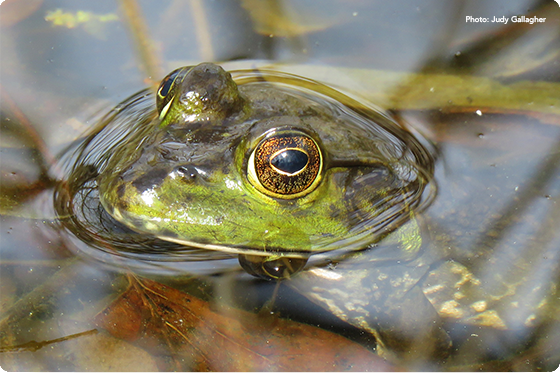
In December 2023, the California Fish and Game Commission voted to ban the importation and sale of the American bullfrog. The bullfrog, which is native to the eastern United States, is farmed commercially in China, Brazil, and other countries and exported around the world for food. American bullfrogs were introduced to the west in the early 1900s and are widely established in California, Washington, and Oregon. The Commission’s decision was driven by concerns about the invasive nature of these amphibians and their impact on native ecosystems and the spread of diseases.
The Invasive Threat
Originally native to the eastern United States, American bullfrogs found their way to the West in the mid-1800s, primarily in California, Oregon, Washington, Utah, and New Mexico. They were introduced as a food source, for pest control, and for sport hunting; however, their aggressive and voracious nature quickly made it apparent that they would create ecological consequences for native species. Bullfrogs will eat anything they can catch, including other frogs, bats, turtles, fish, and birds. Additionally, American bullfrogs carry a deadly chytrid fungus, a pathogen responsible for the decline of native amphibian populations. Due to their high mobility, aggressive appetites, and high reproduction rates, they are nearly impossible to eradicate once established in a new area.
National Response and Import Bans
Several states recognize the urgency of addressing the American bullfrog invasion. For example, Wyoming has a strict regulation mandating the immediate killing of any American bullfrog found and taken. Wyo. Code R. § 52-7 (2019). Washington prohibits the possession or sale of bullfrogs. Wash. Admin. Code § 220-12-090 (2024). Utah urges their residents to catch and eat more bullfrogs, even providing a breaded bullfrog legs recipe on the Utah Division of Wildlife Resources website.
Conclusion
California’s recent decision to ban the import and sale of American bullfrogs marks a significant step in the ongoing battle against invasive species. It is important to note, however, that the Commission voted against adding the species to the states restricted list. That means it will continue to be legal to transport and possess American bullfrogs within the state. As other states follow suit and implement measures to control invasive bullfrog populations, this highlights a shared commitment to address ecological consequences and to protect native species and habitats.












